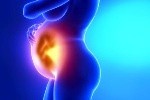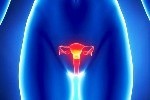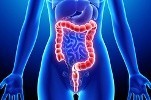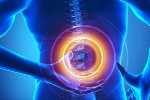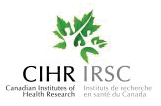Pelvic Inflammatory Disease
Pelvic inflammatory disease or PID describes inflammation, usually from
infection, of the reproductive organs. It can be acute, or long term and
chronic. When the infection or inflammation is in the uterus, it is called
endometritis. This can cause infertility by disrupting implantation. When the infection is in the fallopian tubes, it is called salpingitis; this causes infertility because the tubes cannot transport egg or sperm due to the inflammation, scarring or fluid accumulation in the tubes (this latter is called hydrosalpinx). Fertility is also decreased because abdomen pain doesn’t predispose to frequent sexual intercourse.
The disease may follow certain procedures, such as insertion of IUDs (intrauterine devices) or curettage of the uterus, or it may be sexually transmitted.
Acute Pelvic Inflammatory Disease
When the condition is acute there is evidence of severe infection (usually by chlamydial, gonorrhoeal or streptococcal bacteria) manifesting in symptoms such as fever, purulent discharge from the vagina, dysuria, lower back pain and abdomen pain. Such acute infection must be treated with aggressive antibiotic treatment as rapidly as possible to try and save the tubes from permanent damage and conserve fertility. Usually intravenous antibiotics are given in hospital.
Chronic Pelvic Inflammatory Disease
Chronic PID is an insidious disease which can be unresponsive to antibiotic treatment. Sometimes it develops from acute PID if it is not treated adequately and sometimes there are no symptoms or only mild intermittent symptoms of lower back and abdomen pain accompanied by a feeling of fatigue or unwellness. Microorganisms T-strain mycoplasma (Ureaplasma) and Candida have been implicated in some cases of chronic PID, as has untreated Chlamydia.
In the case of chronic PID, treatment with Chinese medicine often offers good resolution and restores fertility.
Analysis of Traditional Chinese Medicine for Pelvic Inflammatory Disease
According to TCM the cause of acute PID is invasion of Damp-Heat. Because antibiotic therapy clears Damp-Heat rapidly, it is the treatment of choice in this case where fertility is greatly at risk.
The symptoms of chronic PID develop when acute Damp-Heat is not thoroughly resolved or when Liver Qi stagnation slows up fluid metabolism such that low-grade Damp-Heat develops. In other words, the vitality and health of the pelvic tissues are compromised due to sluggish metabolism and low-grade infections can more easily become established.
The pathology of chronic PID is complex because it is a mixture of excess pathogens and a deficient body condition. Chronic PID only develops when there is some weakness in the body’s constitution. Typically, the weakness is in the Spleen, Kidney or Liver or a combination of any of these.
Liver Qi is especially important in pelvic pathologies, particularly those of the tubes, because this is where the Liver channel travels. If the Liver Qi is weak and easily obstructed, then Qi, Blood and Body Fluids can stagnate and Phlegm-Damp can accumulate.
The Kidney and the Spleen are important in the production of adequate Qi and Blood so that the Liver does not become weak and allow such stagnation in the pelvis. The Kidney and Spleen also play an important role in maintaining good control of fluids and avoiding accumulation of Phlegm-Damp. Laid on top of weaknesses in the Kidney, Spleen or Liver are pathological influences which then create the symptoms of PID. The pathogens involved are:
● Damp-Heat
● stagnation of Qi
● Blood stagnation.
The ways these pathogens can combine with the underlying weakness are many and various. The more common clinical presentations are Spleen deficiency with Damp, Kidney deficiency with Blood stasis, or Liver Blood deficiency with stagnation of Qi.
The channels of the abdomen, particularly the Chong and Ren vessels, are disrupted by these imbalances and infertility can result. If the doctor is skilful and can correctly untangle the various aspects of the disease to make the right diagnosis and apply the correct treatment, then good results from TCM treatment can be expected.
Treatment of Pelvic Inflammatory Disease in Traditional Chinese Medicine
A formula which can be used to address all the common PID – namely, Damp-Heat, stagnation of Qi or Blood – is the following:
Fu Fang Hong Teng Bai Jiang San (Sargentodoxae Patriniae Compound Powder)
Dang Gui 10 g Radix Angelicae Sinensis
Chi Shao 10 g Radix Paeoniae Rubra
Bai Shao 10 g Radix Paeoniae Lactiflorae
Hong Teng 15 g Caulis Sargentodoxae
Bai Jiang Cao 15 g Herba cun radice Patriniae
(Sheng) Shan Zha 12 g Fructus Crataegi
Yan Hu Suo 10 g Rhizoma Corydalis Yanhusuo
Chai Hu 5 g Radix Bupleuri
Chen Pi 5 g Pericarpium Citri Reticulate
Mu Xiang 5 g Radix Saussureae seu Vladimiriae
Yi Yi Ren 15 g Semen Coicis Lachryma-jobi
Sang Ji Sheng 12 g Ramulus Sangjisheng
This formula addresses pain and internal sepsis. Hong Teng and Bai Jiang Cao clear Damp-Heat and have proven antibiotic and anti-inflammatory effects.
Yan Hu Suo and Shan Zha together with Chi Shao and Dang Gui move Blood stasis to relieve pain. Additionally, Mu Xiang, Chai Hu and Chen Pi help relieve pain by moving stagnant Qi. Bai Shao, with its ability to soothe the Liver Qi, reduces abdominal pain. Finally, Yi Yi Ren and Sang Ji Sheng clear any Damp which may have accumulated. If the abdomen pain is worse for cold and better for heat, then add:
Rou Gui 3 g Cortex Cinnamomi Cassiae
Ai Ye 5 g Folium Artemisiae
If there are palpable masses, add:
San Leng 10 g Rhizoma Sparganii
E Zhu 10 g Rhizoma Curcumae Zedoariae
Tu Bie Chong 5 g Eupolyphagae seu Opisthoplatiae
Sha Ren 5 g Fructus seu Semen Amomi
Bai Zhu 10 g Rhizoma Atractylodis Macrocephalae
Thus, this formula addresses most of the manifestations of PID but it must be used with great caution if there is Spleen, Kidney or Liver weakness.
Acupuncture
Points may be chosen to relieve pain and clear Damp-Heat. Choose from the following points to construct a treatment or add points chosen from this list to point prescriptions in the following section describing treatment for the underlying condition:
KI-14 Siman
Ren-5 Shimen
SP-12 Chongmen
SP-13 Fushe
ST-25 Tianshu
LIV-4 Zhongfeng
Ren-3 Zhongji
GB-26 Daimai
GB-27 Wushu
GB-28 Weidao
KI-10 Yingu
SP-9 Yinlingquan
LIV-5 Ligou
LIV-8 Ququan
Contact Us
Chalmers Medical Building
328 Hwy 7 East Suite 201,
Richmond Hill ON L4B 3P7
Tel: 416 399-3888
E-mail: info@aahclinic.com
Conditions Treated
Effective Herbal Therapy for Inflammatory Bowel Disease
NO Surgery!
Carolyn XU Treats Ulcer Colitis Successfully
Considering Therapy?
Resource Links
References
Donation
Great things happen when you put your heart into it.
Click Here to Send us your request
Tips
Questions about your first appointment or if your insurance will cover the cost? Find more information below.


